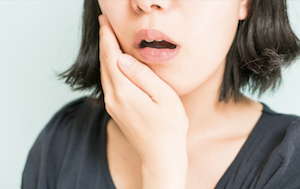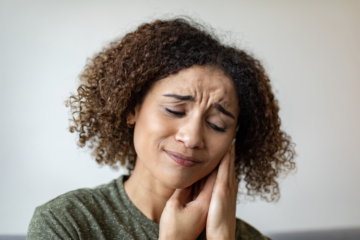We’ve all either been the kid or have a kid that has fallen and busted open their chin. After the tears and pain subsided, that new scar was probably shown to everyone the next school day. They proudly point their chin toward the ceiling for all to see the web of stitches holding together the wound. Unfortunately, for the many adults that underwent the bike crash, trampoline spill, or trip and fall as a child, they are now having to deal with the unforeseen consequences of their badge of honor.
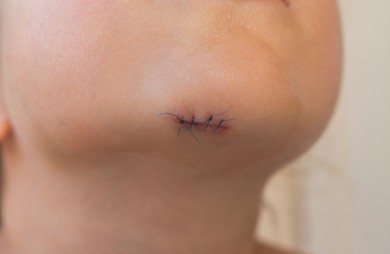
When landing on your chin, there are the immediate and more obvious issues, such as the aforementioned wound. There is also risk for fracture of the mandible (jaw bone), or damage to teeth by chipping or cracking. Beyond the short term injury, there is a risk for developing what many call “TMJ”. The TMJ is actually your temporomandibular joint. You can think of it as the hinge that allows your jaw to move and your mouth to open. A better way to name this issue is temporomandibular joint disorder, or TMD. TMD can be experienced as any limitation to the function of your jaw whether that is due to pain, tension, locking, clenching, or popping.
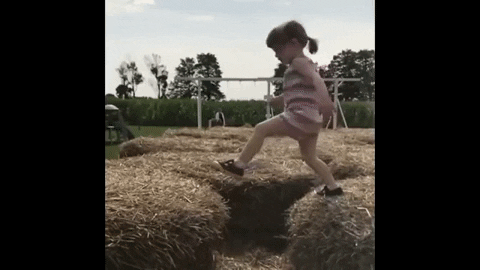
Hitting the bottom of the chin can result in the jaw joints being forced backwards into the sensitive soft tissue of the TMJ. This can cause increased pain at the jaw joint and limited ability to open your mouth. It could even result in you not being able to open your mouth at all! Although these may be short term consequences, these issues can also persist long after the stitches have been removed.
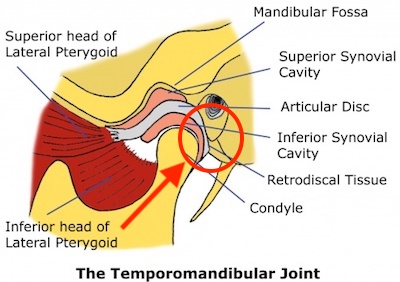
The Long Term Consequence of Falling onto Your Chin
Unfortunately, falling onto your chin as a child can lead to TMD much later in life. With any injury to your jaw, irregular movement patterns are likely to develop. Your jaw muscles try to compensate and protect you in avoiding painful movements. This muscular compensation occurs each time you experience pain with opening your mouth, chewing, taking bites, yawning, talking, or performing dental hygiene.
Even without pain at the TMJs, the trauma can still disrupt the long term movement of the joints. The TMJ often becomes stiffer and does not move as smoothly as it once had following this type of injury. This places you at a greater risk of developingTMD later on in life.
Some compensation patterns may result in chewing on only one side of your mouth. Others may include self limiting mouth opening or having to shift your jaw to the side before opening wide. Typically, a result of falling onto your chin is some form of reduction in how much you are able to open your mouth.
If you or your child have recently had a fall on the chin, please be sure to monitor for residual jaw pain. Any restrictions in movement can result in long term limitations in you or your child’s ability to chew or maintain dental hygiene. If any of those issues are persisting, please contact me and we can discuss your situation. Reach out through email, phone, or check us out on Instagram and Facebook. If you happen to be in the Asheville, NC region, we can assess if falling onto your chin has impacted your TMJ!
